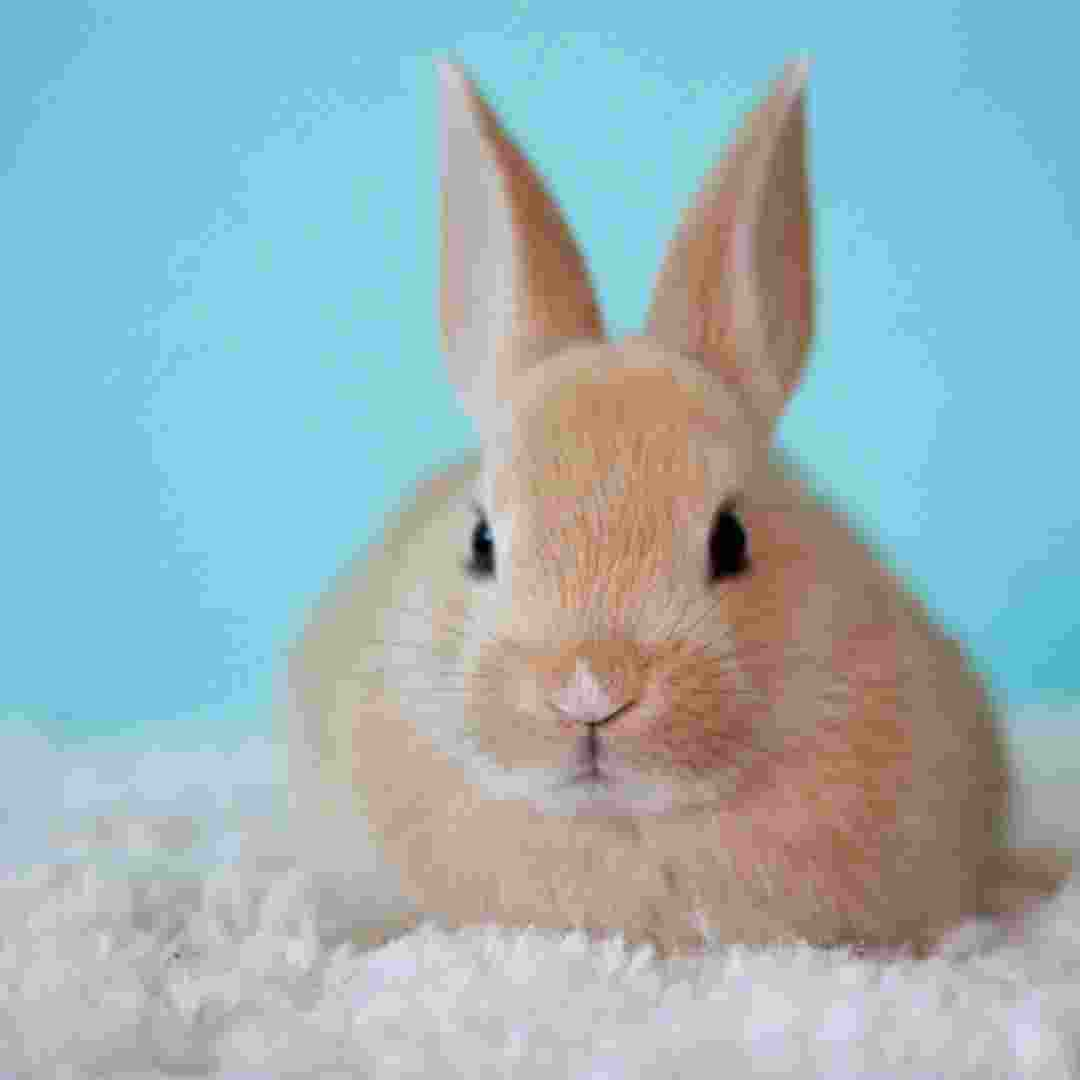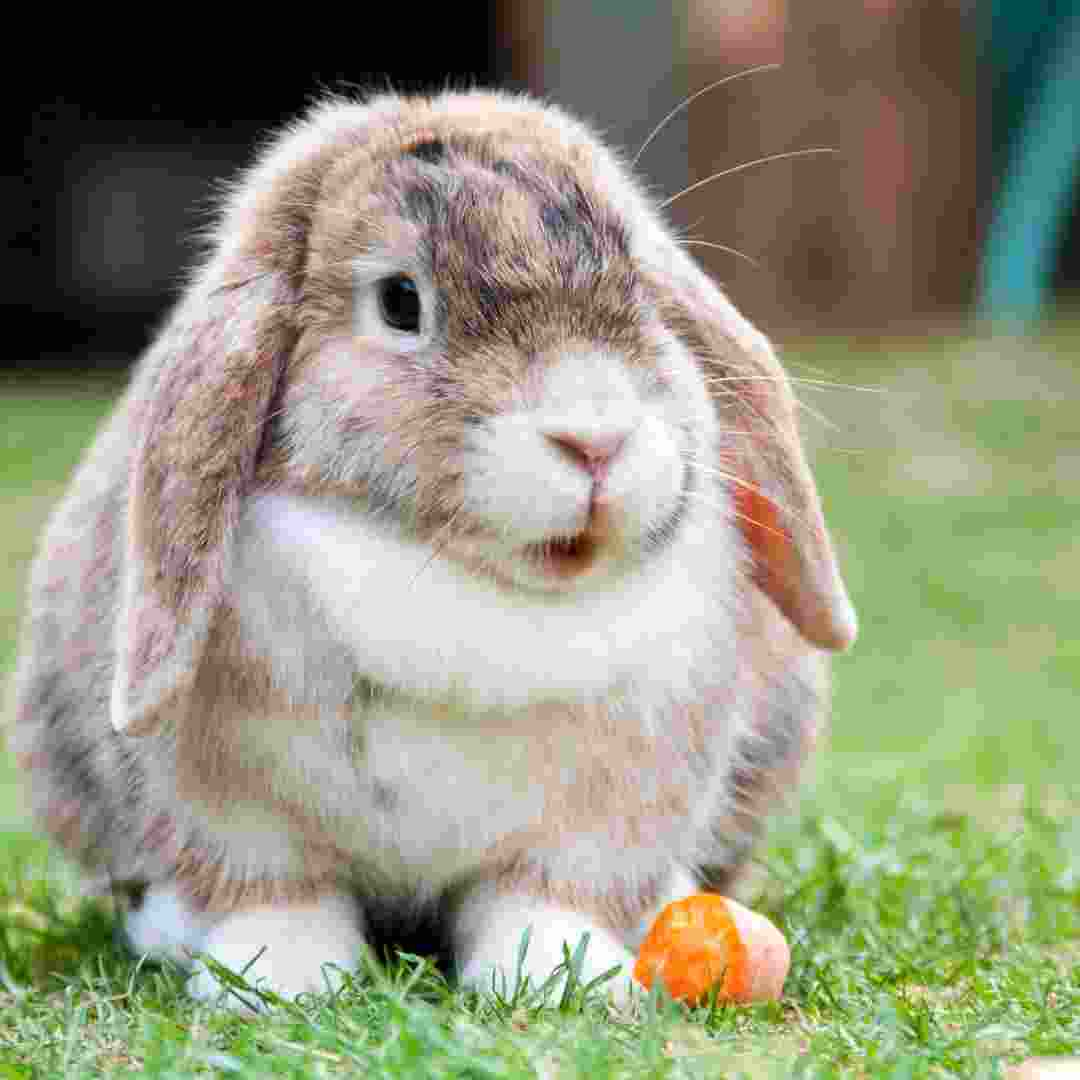Contents Table
Introduction
The Risks of Chocolate for Rabbits
Bad Effects of Feeding Rabbits Avocado
Risks of Feeding Rabbits Onions
Feeding Rabbits Raw Potatoes Risks
Effects of Feeding Rabbits Rhubarb
Q&A
Conclusion
Introduction
Rabbits make cute, cuddly pets. However, rabbits have special nutritional needs and should never eat certain items. Keeping rabbits healthy and happy requires knowing what they can and cannot consume. This page discusses rabbit-unfriendly foods and how to feed your pet a balanced diet.
The Risks of Chocolate for Rabbits
Although humans love chocolate, rabbits are at risk. Chocolate includes theobromine, a rabbit-toxic stimulant. Chocolate can induce mild to severe symptoms and even death in rabbits.
Chocolate is made from cocoa beans, which contain theobromine. It's also in tea, coffee, and cola. Theobromine is poisonous to rabbits yet somewhat stimulating to humans. Rabbits may have seizures, heart rate increases, and restlessness from theobromine. It can also cause diarrhoea and vomiting. Severe theobromine toxicity can kill.
Chocolate should not be given to rabbits. Chocolate should never be offered to rabbits as a treat and should be kept out of their reach. If a rabbit eats chocolate, take it to the vet. The doctor may induce vomiting to remove chocolate from the rabbit's system and administer fluids and drugs to help it recover.
Chocolate is harmful to rabbits and should be avoided. If a rabbit eats chocolate, take it to the vet.
Bad Effects of Feeding Rabbits Avocado
Though popular with humans, avocados are not good for rabbits. Avocado's high fat content and toxicity make it unsafe for rabbits.
Avocado's high fat content can be hard for rabbits to digest. This can cause bloating, gas, and diarrhoea. High fat levels can also create rabbit obesity, which can cause additional health issues.
Avocado contains persin, a rabbit-toxic toxin. For rabbits, persin can cause vomiting, diarrhoea, and death. Avocado should not be fed to rabbits.
In addition to toxicity, avocado can choke rabbits. Rabbits can choke on avocado pits and chew avocado flesh.
Avocado is heavy in fat and poisonous, so rabbits should not eat it. Try feeding your rabbit fresh vegetables or hay for a healthy snack.
Risks of Feeding Rabbits Onions
Many families love onions, but rabbits cannot eat them. Anaemia, intestinal difficulties, and mortality can result from feeding rabbits onions.
Thiosulfate in onions is harmful to rabbits. Thiosulfate can produce Heinz body anaemia when consumed. A reduction in red blood cells can cause lethargy, weakness, and mortality.
Besides anaemia, onions can induce gastric difficulties in rabbits. Fiber-rich onions can produce rabbit gas and bloating. This can induce intestinal obstructions and pain.
Onions kill bunnies too. Onion overdose can cause hemolytic anaemia in rabbits. Organ failure and death can result from red blood cell breakdown.
Rabbits should not be fed onions for these reasons. Consult your vet immediately if you suspect your rabbit ate onions.
Feeding Rabbits Raw Potatoes Risks
Raw potatoes are potentially harmful to rabbits. Although potatoes are a starchy vegetable, rabbits should not eat them in big quantities as they might cause major health problems.
Potatoes contain rabbit-toxic solanine. Potato skin and greens contain solanine, which can induce gastrointestinal upset, paralysis, and death in significant levels. Solanine can be found in modest concentrations in peeled and cooked potatoes.
Along with solanine, potatoes are high in carbs and can upset rabbits' stomachs. Rabbits' herbivorous digestive systems cannot handle huge amounts of carbs. Too many potatoes can cause bloating, gas and diarrhoea.
Finally, rabbits may choke on potatoes. A rabbit can choke on a huge potato slice.
In conclusion, rabbits should not eat uncooked potatoes. If you feed your rabbit potatoes, boil and serve modest amounts. Make sure the potato has no green spots or sprouts, which can contain solanine.
Effects of Feeding Rabbits Rhubarb
Feeding rabbits rhubarb can be harmful. Rabbits are sickened by even modest doses of rhubarb.
Oxalic acid in rhubarb leaves poisons rabbits. Even a modest amount of rhubarb can cause vomiting, diarrhoea, and abdominal pain in rabbits. Oxalic acid can damage and fail the kidneys in severe circumstances.
Rhubarb has significant calcium oxalate and oxalic acid levels. This chemical can produce rabbit kidney stones by depositing calcium. These stones can clog the urinary tract, causing difficulties.
Additionally, rhubarb's high sugar content might cause dental issues in rabbits. The sugar can create cavities and other tooth disorders, causing pain.
Also, rhubarb is not the only plant poisonous to rabbits. Consuming tomatoes, potatoes, and onions in big numbers can also be harmful. To keep rabbits safe, investigate plants before feeding them.
Finally, feeding rabbits rhubarb can harm them. Sugar, oxalic acid, and calcium oxalate in rhubarb can cause digestive issues, kidney damage, and tooth issues. To keep rabbits safe, investigate plants before feeding them.

Q&A
1. What veggies are rabbit-unfriendly?
Rabbits should avoid nightshade vegetables such potatoes, tomatoes, peppers, and eggplants.
2. What fruits don't rabbits eat?
Rabbits should avoid sugary fruits including grapes, bananas, and mangoes.
3. What grains don't rabbits eat?
Rabbits should avoid wheat, oats and maize.
4. What dairy products are rabbit-unfriendly?
Rabbits should avoid milk, cheese, and yoghurt.
5. Can't rabbits consume these meats?
Rabbits shouldn't eat beef, pork, or chicken.
Conclusion
Finally, rabbits should not eat dairy, chocolate, coffee, alcohol, or processed foods. They should also avoid sugar, salt, and fat. In addition, rabbits should not be fed harmful plants or flowers. Following these recommendations keeps rabbits healthy and happy.
